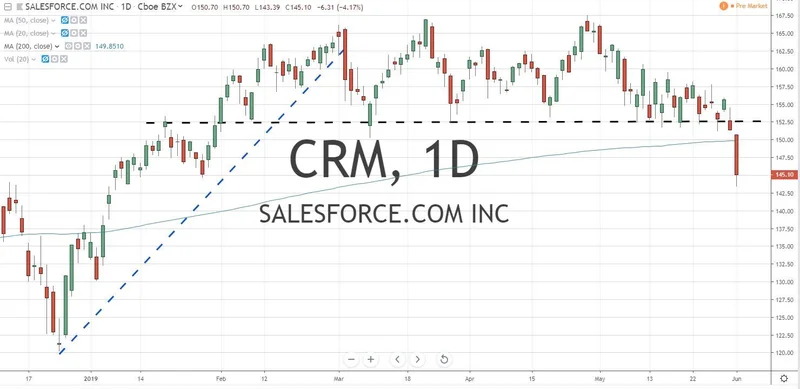To understand the current buzz around Veeva Systems, you have to look past the glowing analyst notes and the record-breaking quarterly reports. You have to go back to a foundational decision the company made—a high-stakes, capital-intensive bet that most software companies would be too terrified to even consider.
Veeva didn't just build a better product. It performed open-heart surgery on itself, in public, and the patient is now running marathons.
The recent headlines are straightforward enough. CNBC’s Josh Brown added VEEV to his list of top stock ideas. TimesSquare Capital’s U.S. Focus Growth Strategy reported a 24% boost from its position in the company. Veeva just signed a major deal with pharma giant Bristol Myers. And its Q2 2025 revenues and earnings were, in absolute dollar terms, some of the strongest in the company’s history. It’s a clean sheet of positive signals.
But these are just the symptoms. The cause is far more interesting. These results are the final vindication of Veeva’s quiet, methodical, and incredibly risky divorce from Salesforce.
The Price of Independence
For years, Veeva’s industry-leading CRM software was built on top of the Salesforce platform. It was a symbiotic relationship—Veeva provided the specialized, life-sciences-focused application layer, and Salesforce provided the foundational architecture. It worked, but it also meant Veeva was fundamentally dependent on another company’s technology, roadmap, and pricing structure. They were a tenant, not a landlord.
So, they decided to build their own house. The company began a multi-year, monumentally expensive project to migrate its flagship product to a proprietary platform, Vault CRM. This is the kind of move that gives investors nightmares. It's like trying to swap out the entire engine of a race car while it's still speeding down the track. You’re burning cash on R&D for a new system (a move that likely cost them hundreds of millions) while simultaneously trying to convince your existing, high-value customers to come along for the ride. One wrong move, one data-migration catastrophe, and the whole enterprise could collapse.

And this is the part of the story that I find genuinely compelling. I've analyzed countless platform migrations, and they are almost universally messy, loss-making affairs for at least a few quarters. They’re plagued by delays, cost overruns, and customer attrition. Veeva's transition, however, has been an outlier in its clean execution. They didn't just survive the surgery; they emerged stronger.
The question I keep coming back to is, what did they know that gave them the confidence to pull the trigger on such a move? Was it deep-seated customer dissatisfaction with the Salesforce base, or was it a prescient understanding that true market dominance required owning the entire technological stack, from the basement to the penthouse?
The Data Doesn't Lie
Now, the dividends of that bet are becoming undeniable. Josh Brown’s recent commentary wasn’t just hype; it was an observation of a completed strategic maneuver. He noted that Veeva is "effectively becoming the industry standard CRM platform for drug discovery" (Josh Brown Pitches Best AI Stock ‘Not a Lot of People Know About’ - Yahoo Finance). That's not a position you can achieve as a tenant on someone else's platform. You need to own the infrastructure to dictate the standard.
Let's look at the numbers. The company is projecting that 2025 will be its most profitable year in absolute dollar terms since 2020. Operating margins are looking robust—around 40%, to be more precise, 38.7% according to the last filing. This isn't just growth; it's profitable growth, the kind that comes from no longer paying a hefty toll to a platform provider. Every new dollar of revenue has a clearer path to the bottom line. You can almost picture the quiet satisfaction in the Veeva boardroom, the soft glow of a monitor displaying the Q2 numbers that vindicated a billion-dollar bet made years ago.
The accelerated growth in their commercial subscription revenue, driven by the Crossix data analytics platform, is another key signal. Owning their own platform allows Veeva to integrate services like Crossix and new AI-embedded features far more deeply than they ever could on a third-party system. They’re no longer just selling a CRM; they’re selling a single, vertically integrated ecosystem for the entire life sciences industry, from R&D to marketing analytics.
This creates an incredibly deep competitive moat. How does a new startup even begin to compete with that? You can't just build a better CRM app; you have to replicate an entire, industry-specific cloud infrastructure that has been battle-tested and validated by clients like Bristol Myers. It raises the barrier to entry from a high jump to a pole vault. But does this level of integration and customer lock-in create a new kind of risk? At what point does being the "industry standard" attract the unwanted attention of regulators?
The Bet Paid Off
Veeva’s story isn’t about a hot new AI feature or a single blowout quarter. It’s a case study in corporate strategy and conviction. The decision to decouple from Salesforce was a declaration of independence, a bet that true, long-term value lay in controlling their own destiny. They traded the relative safety of dependency for the absolute control of sovereignty. The recent financial results and analyst praise aren't the beginning of a new story; they are the closing paragraphs of an old one. And the data is now irrefutably clear: the cost of freedom was worth it.
